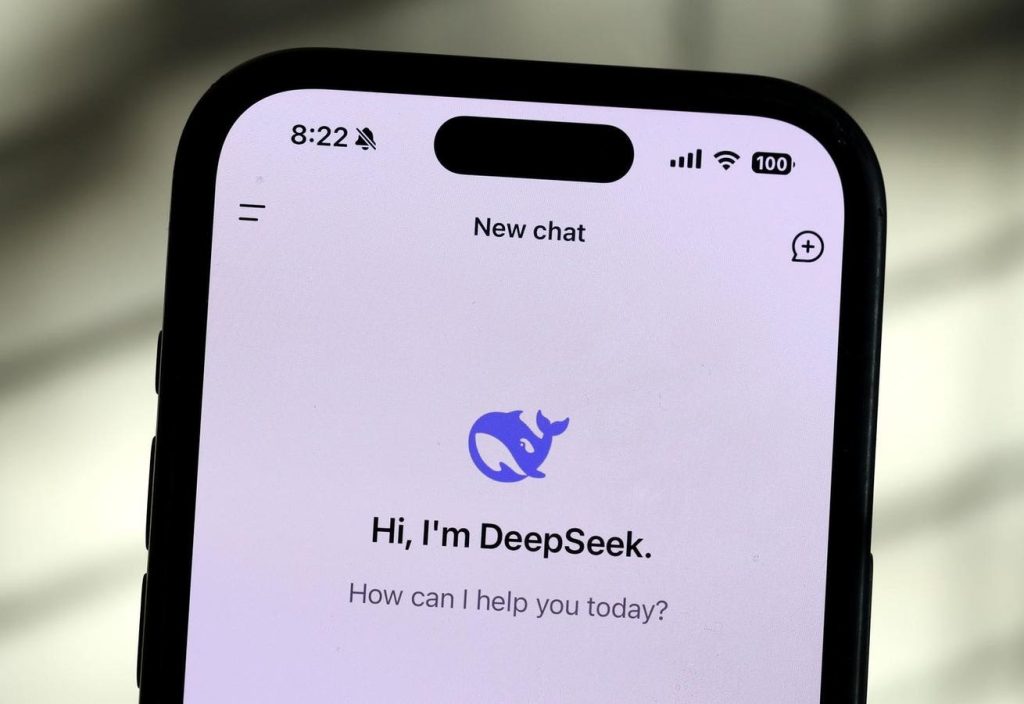DeepSeek’s Rise and the Democratization of AI
The tech world is abuzz with the meteoric rise of DeepSeek, a Chinese AI startup founded in 2023. DeepSeek’s chatbot app has briefly eclipsed ChatGPT in download rankings, sparking discussions about its capabilities and potential impact. While the company claims remarkably low training costs for its advanced AI model, experts remain skeptical. Adding to the intrigue is DeepSeek’s data privacy policy, which raises eyebrows due to the storage of sensitive user information on servers located in China. This development has significant implications for businesses. While concerns about data security with a Chinese platform are valid, DeepSeek’s model could democratize AI by driving down development costs for U.S. startups and tech firms. This could lead to a faster rollout of AI technologies across various industries, making AI more accessible to smaller companies and potentially benefiting the environment through reduced computational needs.
X’s Foray into Financial Services and the Future of Payments
X, formerly Twitter, is set to launch its payments app, X Money, later this year, marking a significant step in its evolution into an "everything app." The app, developed in collaboration with Visa, will facilitate peer-to-peer payments, bank transfers, and deposits into X Wallets. This move aligns with Elon Musk’s vision for X and its expansion into financial services. The potential impact on small businesses is substantial. X’s widespread user base and integrated payment system could streamline transactions and provide a convenient platform for receiving payments. The success of X Money hinges on factors like ease of use, transaction fees, and any potential restrictions. However, if implemented effectively, it could become a standard tool for businesses to manage their finances and interact with customers.
Microsoft Outlook Enhancements: Navigating the Future of Email
Microsoft continues to refine its Outlook for Microsoft 365 platform, introducing new features and functionalities designed to enhance user experience and productivity. Key updates include a transition towards the "New Outlook," which offers a modernized interface and improved integration with other Microsoft services. A comprehensive "cheat sheet" highlights valuable tips and keyboard shortcuts, including lesser-known search bar functions and the ability to conduct research directly within Outlook using Bing. These updates are crucial for businesses as they streamline email management, improve collaboration, and provide access to information within the Outlook environment. The integrated research function can significantly boost productivity by allowing users to quickly gather information without switching between applications.
The Next Generation of Business Laptops: Powering AI and Productivity
The 2025 Consumer Electronics Show (CES) showcased significant advancements in business laptops, with major vendors like Dell, HP, and Lenovo unveiling new models featuring faster chips, extended battery life, and enhanced AI integration. These improvements are powered by the latest processors from AMD, Intel, and Qualcomm, offering significant performance boosts and improved battery efficiency. The expansion of Microsoft’s Copilot+ PC initiative further integrates AI functionalities into laptops, providing features like live translations and enhanced task automation. These advancements are essential for businesses as they equip employees with powerful tools to handle increasingly demanding workloads, including AI-driven applications. The combination of faster processing, longer battery life, and integrated AI capabilities promises to significantly enhance productivity and streamline workflows.
Navigating the Legal Landscape of AI in the Workplace: New York’s Disclosure Mandate
New York State has implemented a new requirement for employers, mandating the disclosure of AI’s role in mass layoffs or closings. This addition to the Worker Adjustment and Retraining Notification (WARN) Act aims to track the impact of AI on employment and inform reskilling efforts. This development is crucial for businesses as it signifies a growing trend of AI-related legislation. Multiple states are introducing regulations targeting employers’ use of AI in hiring, recruiting, and talent management. These regulations underscore the importance of using AI responsibly and addressing potential biases embedded in AI algorithms. Companies operating across state lines must navigate diverse regulatory landscapes and ensure compliance with specific state requirements regarding AI usage in the workplace.
The Evolving Intersection of AI, Business, and Regulation
The intersection of AI, business operations, and government regulation is rapidly evolving. From the rise of new AI powerhouses like DeepSeek to the integration of AI into everyday tools like laptops and email clients, the influence of artificial intelligence is undeniable. Businesses must stay informed about these developments and adapt their strategies accordingly. This includes embracing the potential benefits of AI while mitigating potential risks related to data privacy, algorithmic bias, and evolving legal frameworks. As AI continues to reshape the business landscape, proactive adaptation and responsible implementation will be key to success.















